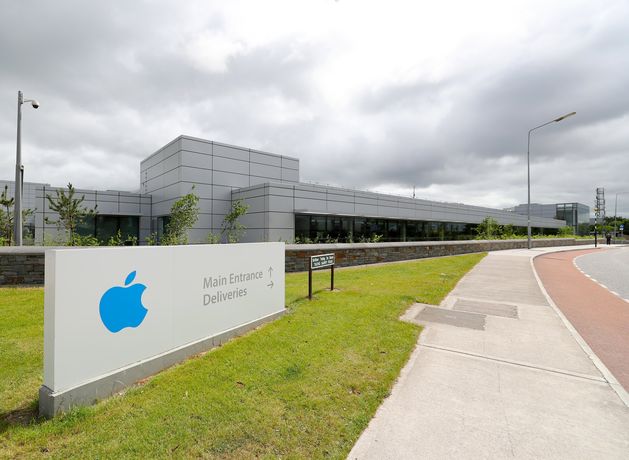The €13bn has been sitting in an escrow account for the past six years.
The €13bn Apple tax money was set aside after the European Commission had concluded in 2016, following an investigation, that Apple had enjoyed “selective” advantages over other Irish-based companies for decades – in other words, a sweetheart tax deal.
The money is the Commission’s estimate of back taxes Apple should previously have paid.
Both Apple and the Irish Government had insisted there was never such a deal and have been fighting a legal action through increasingly senior courts.
The ruling by the European Court of Justice (ECJ), the EU’s top court, threw out an earlier ruling by a lower court.
The original case was taken by commission competition chief Margrethe Vestager, and was part of a wider drive against profit-shifting by large (mainly US tech) multinationals, using the bloc’s state aid rules.
The Apple crux of the case is the commission’s finding that so-called tax rulings issued by the Irish Revenue Commissioners between 1991 and 2007 allowed the tech giant pay a tax at rates that were as low as 0.005pc in one year. Apple has always said it paid its taxes in full but that they weren’t necessarily owed where the EU thought.
Today’s News in 90 Seconds – September 10th
The Irish Government view is that tax rulings are a normal part of business, giving corporations clarity around the tax due on often complex structures, but don’t change what is owed.
Ireland and Apple contested the decision and in 2020 the EU’s General Court ruled in their favour.
The Commission appealed to the higher ECJ, which delivered Tuesday’s ruling.
The ECJ said today that the General Court had erred when it ruled that the Commission had not proved sufficiently that the intellectual property licences held by two companies in the Apple Group, Apple Sales International (ASI) and Apple Operations Europe (AOE) and related profits, generated by sales of Apple products outside the United States, should have been allocated, for tax purposes, to the Irish branches.
The case is a landmark one, both because of the size of the contested tax bill and what it says about where intellectual property-related profits should be booked and taxed.
Last November, the advocate general of the ECJ, Giovanni Pitruzzella, said the 2020 ruling against the EU, won by Apple and Ireland, should be set aside and referred back to the courts “for a new decision on the merits”.
The advocate general is an important official at the ECJ who helps guide complex cases through the court. Their opinions are not binding on judges but they do tend to shape the decisions that get handed down.
However, this time around the ECJ judges opted to effectively throw out the lower court’s reasoning and find in favour of the original case taken by the Commission.
A spokesperson for Apple said it was disappointed at the decision.
“This case has never been about how much tax we pay, but which government we are required to pay it to. We always pay all the taxes we owe wherever we operate and there has never been a special deal,” they said.
“Apple is proud to be an engine of growth and innovation across Europe and around the world, and to consistently be one of the largest taxpayers in the world. The European Commission is trying to retroactively change the rules and ignore that, as required by international tax law, our income was already subject to taxes in the US. We are disappointed with today’s decision as previously the General Court reviewed the facts and categorically annulled this case,” they added.

